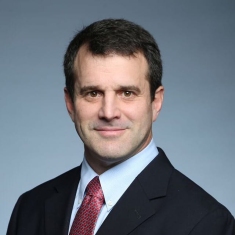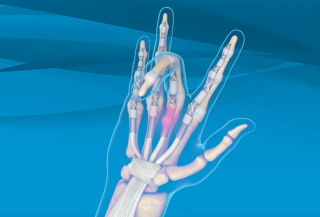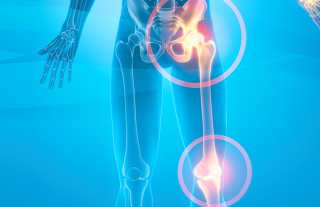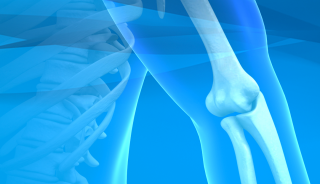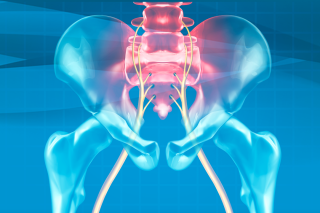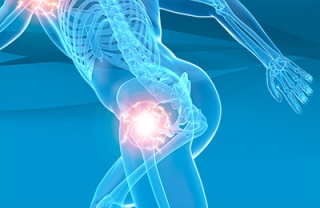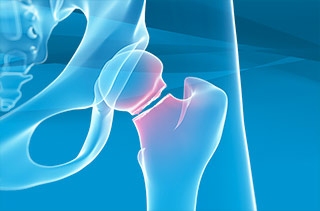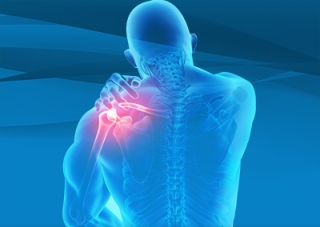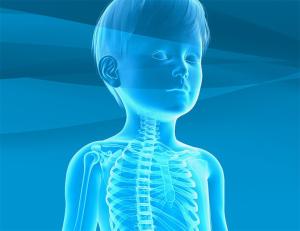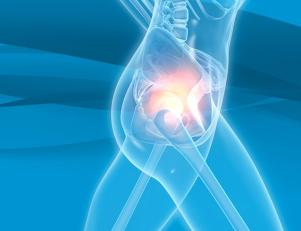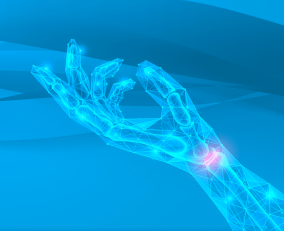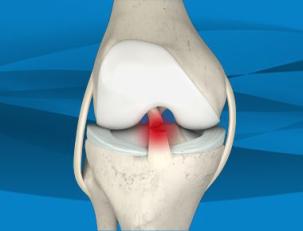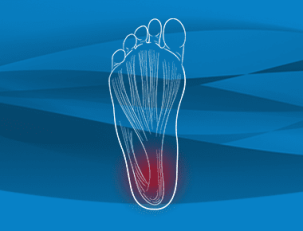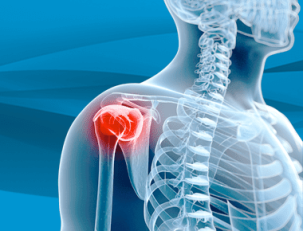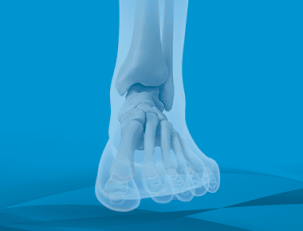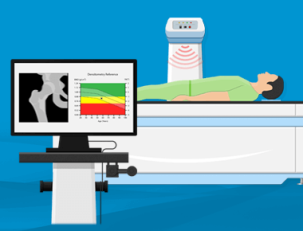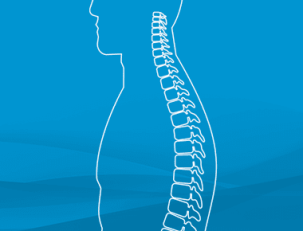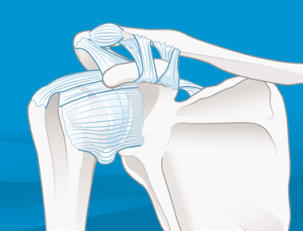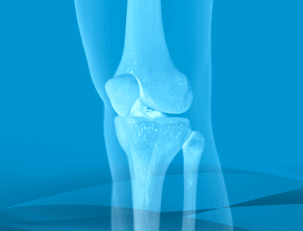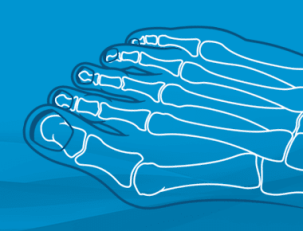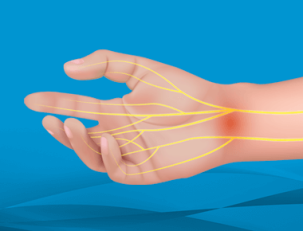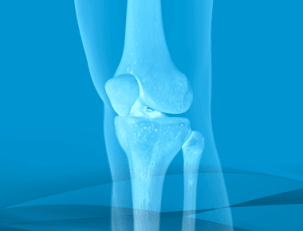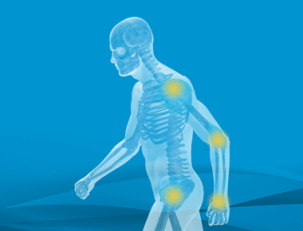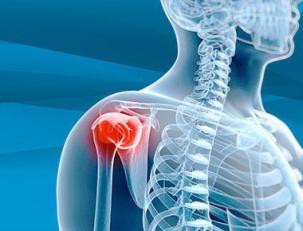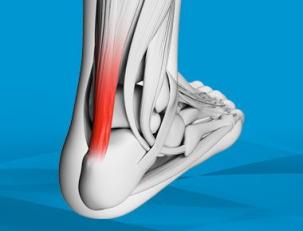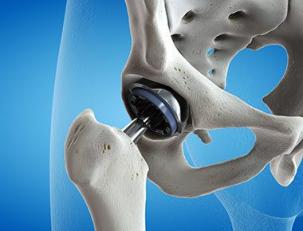Same-day Joint Replacement
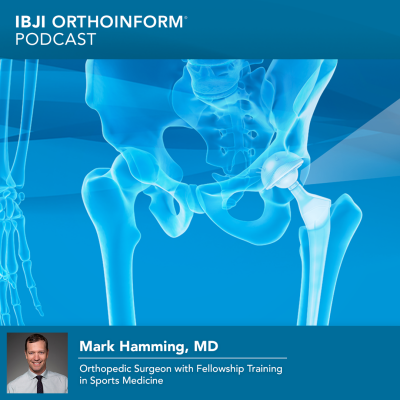
What if you could have a joint replaced and recover in your own bed the same day? In this episode of OrthoInform, Dr. Eric Chehab talks with Dr. Mark Hamming about the rise of same-day joint replacement surgery. They break down how it works, who’s a good candidate, and why outcomes are often better when patients go home instead of staying in the hospital. Learn how improved surgical techniques, better pain management, and thoughtful patient selection are making recovery faster, safer, and more comfortable than ever.
Hosted by Eric Chehab, MD
More Episodes
Robotic-assisted Orthopedic SurgeryEpisode 33
This episode, Dr. Eric Chehab sits down with hip specialist Dr. Justin LaReau to discuss the evolution and benefits of robotic-assisted orthopedic surgery. From improved preoperative planning to enhanced surgical precision, they explore how robotics is transforming joint replacement procedures, particularly for knee surgeries. Dr. LaReau shares his insights on how robotic tools help optimize patient outcomes, reduce variability, and facilitate faster recovery. Tune in to learn how this innovative technology is shaping the future of orthopedic care and improving the quality of life for patients undergoing joint replacements.
Trigger FingerEpisode 32
In this episode of OrthoInform, Dr. Eric Chehab sits down with hand and upper extremity specialist Dr. Taizoon Baxamusa to uncover the causes, symptoms, and treatments of trigger finger. Dr. Baxamusa shares insights into what leads to this common hand condition, how to differentiate it from similar ailments, and the range of treatment options available—from non-surgical interventions to a straightforward outpatient procedure. With his wealth of experience, Dr. Baxamusa explains why early movement and proper post-op care are essential for recovery. Join Drs. Chehab and Baxamusa to learn more about managing trigger finger, and get valuable tips for keeping your hands moving at their best.
Rehab for Hip and Knee ArthritisEpisode 31
Join IBJI's OrthoINFORM podcast as Dr. Juliette Dassinger and Dr. Chrissy Adelphia, physical therapists, dive into the world of knee and hip osteoarthritis. Learn what to expect from your first physical therapy visit, the importance of movement in managing osteoarthritis, and how PT can help you live a more active, pain-free life.
Tennis Elbow and Golfer's ElbowEpisode 30
Tune into IBJI's OrthoInform podcast with host Dr. Eric Chehab and guest Dr. Todd Rimington as they discuss common elbow conditions like tennis elbow and golfer's elbow. Learn about causes, symptoms, and treatment options to help you move better and live pain-free. Perfect for anyone dealing with elbow pain or curious about orthopedic care.
Sciatica PainEpisode 29
Guest host Juliette Dassinger is joined by Dr. Gary Shapiro, an esteemed orthopedic surgeon with a specialty in spinal health. This episode delves into the world of sciatica pain, exploring both surgical and non-surgical treatments. Listen as Dr. Shapiro, who has helped everyone from professional athletes to seniors, shares vital insights on managing and understanding sciatica symptoms for improved daily living.
Labral Tears and Hip PreservationEpisode 28
Guest host Cory Leman chats with Dr. Andrew Riff, a fellowship-trained orthopedic surgeon who specialzes in hip preservation and sports medicine. Listen as Dr. Riff shares his expertise on hip pain, labral tears, and hip impingement. The conversation dives into the complexities of hip injuries and preservation techniques as Dr. Riff offers expert advice for everyone from athletes to everyday individuals striving for pain-free mobility.
OrthoAccess Immediate CareEpisode 27
Join Cory Leman, director of the Health Performance Institute, and orthopedic surgeon Dr. Kevin Hayek on the OrthoInform podcast as they discuss OrthoAccess, IBJI's immediate solution to urgent orthopedic concerns. With expert insights, personal stories, and a sprinkle of family legacy, this episode is your guide to moving better and living better. Whether you're dealing with an unexpected sprain or seeking proactive care, join us for an enlightening conversation on orthopedic wellness and the convenience of expert care at your fingertips.
Workers' CompensationEpisode 26
Join Dr. Eric Chehab for a deep dive into the world of workers' compensation with Dr. Kevin Chen. Beyond his expertise in orthopedics, Dr. Chen sheds light on the nuances of navigating workers' compensation claims, offering invaluable insights for anyone facing work-related injuries. Whether you're dealing with acute trauma or chronic conditions stemming from your job, this episode promises to equip you with the knowledge needed to understand your rights and the pathways to recovery. Don't miss this essential conversation for workers across all sectors.
Weight Loss MedicationsEpisode 25
Discover groundbreaking insights in obesity treatment with IBJI's OrthoINFORM podcast. Join Dr. Eric Chehab and experts Dr. Inbar Kirson and Dr. Lynn Gettleman Chehab, as they delve into innovative weight loss medications like Ozempic and Wegovy. Learn about these transformative drugs' effectiveness, potential side effects, and the vital role of comprehensive obesity treatment. This engaging discussion offers valuable knowledge for anyone interested in the latest advancements in metabolic health.
Occupational TherapyEpisode 24
On this OrthoINFORM episode, Dr. Eric Chehab interviews occupational therapist Madison Smith-Osman, OTR/L. A psychology and occupational therapy graduate, Dr. Smith-Osman focuses on upper extremity conditions and workers' compensation. In this talk, she emphasizes OT's role in restoring patients' daily and work abilities post-injury, using techniques like manual therapy and strength training. Her method combines physical and psychological elements to ensure safe patient activity resumption and injury risk reduction. She and Dr. Chehab also discuss patient education and psychology in therapy.
Hip FracturesEpisode 23
In this one-hour podcast, Evan Dougherty, MD, a specialist in orthopedic surgery from Illinois Bone & Joint Institute, delves into the critical topic of hip fractures. Drawing from his years of education and experience, Dr. Dougherty offers insights into the latest treatments and recovery strategies for hip fractures, a common yet serious injury, especially among the elderly. This podcast is an invaluable resource for healthcare professionals, caregivers, and anyone interested in understanding the complexities and advancements in treating hip fractures.
Physical Therapy for Orthopedic ConditionsEpisode 22
Learn more about the transformative world of physical therapy in the latest episode of OrthoInform. Physical therapists Patrick Cristi, PT, DPT and Juliette Dassinger, PT, DPT deliver invaluable insights on the myriad of benefits both physical and occupational therapy can offer. From enhancing mobility to alleviating pain, they uncover the ways that PT can be a pivotal element in improving quality of life, promoting healing, and ensuring optimal functioning of the body. Join us and learn more about how physical therapy fits into an overall wellness regimen.
Pain ManagementEpisode 21
Unlock the key to effective pain management in our must-listen podcast interview. Brian Clay, MD, uses his training as a physiatrist and interventional pain management specialist to explain advanced pain relief techniques, personalized treatment plans, and holistic approaches. Whether your interest is in chronic pain or post-injury recovery, this podcast will help you learn how to find relief and take charge of your well-being.
Pediatric Sports InjuriesEpisode 20
Join board-certified orthopedic surgeon Andrea Kramer, MD, as she offers expert insights on how to prevent and treat a variety of common pediatric sports injuries. Dr. Kramer discusses the growing epidemic of youth sports injuries as well as the rise of overuse in specialization. Whether your young athlete's domain is a field, a court, or a pool, you'll want to tune in to this episode to learn the best ways to keep them in the game.
Hip ArthroscopyEpisode 19
Hip arthroscopy refers to the viewing of the interior of the acetabulofemoral (hip) joint through an arthroscope and the treatment of hip pathology through a minimally invasive approach. This technique is sometimes used to help in the treatment of various joint disorders and has gained popularity because of the small incisions used and shorter recovery times when compared with conventional surgical techniques (sometimes referred to as "open surgery").
Wrist FracturesEpisode 18
FOOSH is a word many may not be familiar with, but it stands for a very common way patients break a wrist: falling on an outstretched hand. Find out what bones can be affected by FOOSH and other common wrist injuries as well as the latest minimally invasive treatment options available and what recovery looks like. Dr. Surbhi Panchal, an orthopedic surgeon with fellowship training in hand and upper extremity, also explains who is at risk for wrist injuries in this episode.
ConcussionsEpisode 17
A concussion is a functional brain injury. Hockey, wrestling, football, lacrosse, gymnastics, and cheerleading are all considered high-concussion-risk sports/activities. There are physical signs and symptoms of concussion and tools that can help to assess brain injury. Learn more about concussion, symptoms, treatment, and return-to-play protocols for athletes from IBJI’s Sports Neurologist Anthony Savino, MD.
Meniscus TearsEpisode 16
One of the most common knee injuries is a torn meniscus. The recommended course of treatment for a torn meniscus can depend on a number of factors, including your age, symptoms, and activity level, as well as the type, size, and location of the tear. Learn more from IBJI’s Dr. Gregory Portland about diagnosing and treating meniscus tears, and what to expect if you need surgery.
Plantar FasciitisEpisode 15
The plantar fascia is the most bottom superficial level of your foot. It’s a ligament that originates at the heel bone and goes all the way up to the ball of your foot. Plantar fasciitis occurs when that ligament becomes irritated and inflamed, resulting in pain and swelling in the bottom of the heel. Learn more about diagnosing and treating plantar fasciitis, and what to expect if you need treatment.
Shoulder InstabilityEpisode 14
Shoulder instability can be summed up as a failure of the components of the shoulder to stay centered in the socket. Learn more from Dr. Steven Chudik, Orthopedic Surgeon with Fellowship Training in Shoulder Surgery and Sports Medicine, about diagnosing and treating shoulder instability, and what to expect if you need shoulder stabilization surgery.
Ankle FracturesEpisode 13
A fractured ankle can range from a stable break in one bone, which may not stop you from walking or bearing weight, to unstable fractures, which may require surgery. Learn more from Dr. Brian Weatherford, Orthopedic Surgeon with Fellowship Training in Trauma and Foot and Ankle Surgery, about ankle fractures, and how they are diagnosed and treated.
Understanding Metabolic HealthEpisode 12
Join us for a multidisciplinary approach to address adult and pediatric metabolic health and weight management, along with health and wellness parameters that include Optimizing Nutrition, Reducing Stress, Pain-free Movement, Improved Sleep Habits and Enhanced Overall Performance.Inbar Kirson, MD, FACOG, Diplomate ABOM, and Lynn Gettleman Chehab, MD, MPH, Diplomate ABOM, explain the importance of these fundamentals. Learn how you can reach your goals by focusing on reasonable and sustainable changes that help optimize long-term health with the IBJI OrthoHealth program.
OsteoporosisEpisode 11
Osteoporosis is a skeletal disorder, characterized by low bone mass, that causes a structural deterioration of the bone. The resulting low bone mass and low bone quality increases the risk of a fractures–even in cases where patients report no or minimal traumatic events leading up to the break. Osteoporosis is often left undiagnosed until patients present with a fracture because it is an asymptomatic disease. Learn more about who is at risk, other ways to diagnose it, and what can be done to manage and maintain bone mass.
Spinal Fusion SurgeryEpisode 10
Dr. Cary Templin explains how spinal fusion surgery, spinal cord decompression, anterior cervical discectomy and fusion (ACDF) and non-surgical treatments can help patients who are experiencing neck pain, radiating pain, weakness, and numbness and tingling.
Shoulder ReplacementEpisode 9
Reverse shoulder replacement has been a revolution in shoulder surgery for patients who have no function above the level of their shoulder. Dr. Craig Cummins explains the differences between anatomic shoulder replacement, partial shoulder replacement and reverse shoulder replacement. He also discusses arthritis, rotator cuff tears, pain management and physical therapy.
Total Knee ReplacementEpisode 8
Total knee replacements are one of the most common and successful orthopedic procedures. The modern total knee replacement started to emerge in popularity in the 1970s and 1980s. Dr. Jeffrey Goldstein explains, since then, improvements in materials and techniques have helped extend the success rates and longevity of replacements. Learn more about the history of knee replacement surgery and what patients having surgery can expect.
BunionsEpisode 7
In the simplest terms, a bunion is a bump that develops at the big toe joint. Dr. Steven Jasonowicz explains that over time, the bump can grow in size, prevent your foot from fitting into certain shoes, and cause pain. Learn more about what can cause bunions, treatment options, and what to expect if you need surgery.
Carpal Tunnel SyndromeEpisode 6
Carpal tunnel syndrome is a condition that causes numbness, pain, and tingling in the hand and arm. It occurs when the median nerve, which runs through the hand and wrist, is compressed. Dr. Christian Skjong explains how physicians diagnose and treat carpal tunnel syndrome to prevent it from progressing over time, and what to expect should you require carpal tunnel release surgery.
ACL Injuries and SurgeryEpisode 5
The Anterior Cruciate Ligament, or ACL, provides the knee the ability to do activities that require high degrees of cutting, pivoting, and accelerating. Dr. David Guelich explains, once the ligament is torn, the knee is largely rendered unable to perform these types of activities. Learn more about ACL injuries, how they are diagnosed and treated, what to expect if you need surgery, and about the typical timeline for recovery from ACL surgery.
Autoimmune DiseaseEpisode 4
Autoimmune and rheumatic disorders cause your own immune system, which should be protecting you, to instead attack your body. They can cause a wide array of symptoms, including hair loss, fatigue, joint pain, joint swelling, rashes and more. Learn about the causes and treatments for autoimmune diseases, as well as the positive prognosis for patients who have autoimmune diseases.
Rotator Cuff RepairEpisode 3
The rotator cuff is a group of four tendons that originate off the shoulder blade and scapula and blend together and insert on the humerus. It essentially holds together the shoulder joint. Rotator cuff tears can be treated both surgically and non-surgically, and every patient who has a rotator cuff tear needs individualized evaluation and treatment plans. Learn more about diagnosing and treating rotator cuff tears, and what to expect if you need surgery.
Achilles Tendon Repair SurgeryEpisode 2
The Achilles tendon is key to the health of the foot and ankle. Achilles tendon treatment has changed significantly in the last ten years, including more aggressive rehabilitation protocols following surgery.
Total Hip ReplacementEpisode 1
The introduction of total hip replacement surgery revolutionized people's ability to walk, function and really carry out near-normal function from a condition that was debilitating. Learn about the history of hip replacement surgery and what patients having total hip replacement surgery can expect.
Don't Miss an Episode
Subscribe to our monthly patient newsletter to get notification of new podcast episodes.


